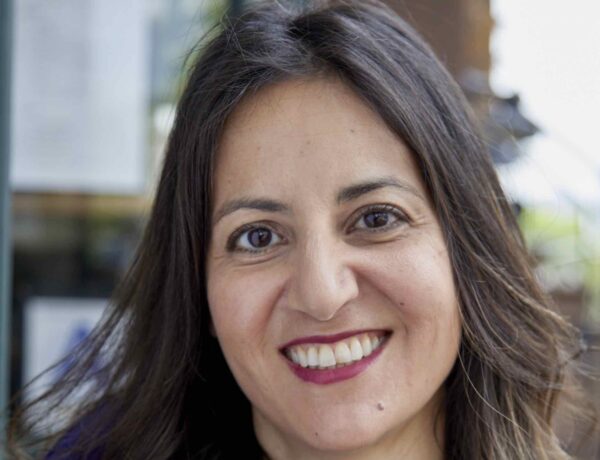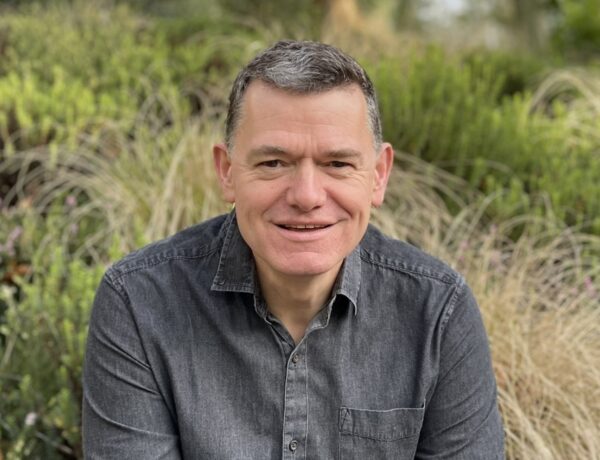Anita Felicelli is the author of Chimerica: A Novel and the award-winning short story collection Love Songs for a Lost Continent.
Most recently, Anita’s short stories have appeared in The Massachusetts Review, Alta Journal, Midnight Breakfast, Air/Light and The Normal School. She has been a regular contributor to the San Francisco Chronicle and Los Angeles Review of Books, and her nonfiction has also appeared in the Washington Post and New York Times (Modern Love), among other places.
Anita is on the Board of the National Book Critics Circle where she serves as Fiction Chair for 2022-2023. She is editor of Alta Journal‘s California Book Club. She grew up in the San Francisco Bay Area, where she lives with her spouse and three children.
Each week, we publish a new daily writing routine from a famous author. Subscribe to our newsletter so you don’t miss out!
Hi Anita, thanks for being with us today. We’re really excited to talk to you about your writing routine and process. For those who may not know, can you please tell us a little bit about yourself?
Thank you for having me. I’m the author of Chimerica, a novel, and Love Songs for a Lost Continent, a short story collection. I also edit Alta Journal‘s California Book Club and write freelance reviews. I’m the chair for this year’s National Book Critics Circle fiction awards. I grew up in the Bay Area, where I still live with my three children and spouse, and which is also the wellspring of most of my fiction.
You said that you knew from around the age of five that you wanted to be a writer, but you ended up working at a law firm for a few years before pursuing fiction. Can you talk about the process of making the transition from being a litigator to a full-time writer?
The dramatic change in going from being a litigator to a full-time writer was in my social life. I wrote novels while I was a litigator, too, and had to balance that with motion writing during work hours. But I think what was startling about the transition was the sudden drop in social contact.
With litigation, you also get to depose people and go to court and get lunch or drinks with coworkers, adversaries, clients, other people. Litigation involved huge adrenaline rushes on a weekly basis. It was never boring. Being overly occupied with a client’s case and strategy and evaluation, however, can make it extremely difficult to tune out and float off into your own world for fiction. Clients’ problems always seeped into my evenings and early mornings.
However, now being a full-time writer and ghostwriter (some of this ghostwriting is also for litigators) who gets paid according to how much she produces presents a few challenges to writing fiction, as well. Most people don’t want to spend 12 or 13 hours typing nonstop and answering to more than a dozen clients and then typing some more, even for pleasure. It’s not exactly living life to the fullest, and there’s some death pressure around that.
How do you balance your writing with your editing, freelance reviews and responsibilities at the National Book Critics Circle? Is it all a juggling act?
It’s a circus on the street. You’re juggling with one hand while miming climbing out of a well with the other, hopping on one foot, and occasionally kicking out a busking hat to catch the attention of the passersby or running into traffic to collect the kids. You also have to smile the entire time like it’s big fun—don’t get me wrong, it can be fun, there are clowns and lions and tightrope walkers and fire—because otherwise nobody will throw any money in your cap.

What an amazing description of your juggling act. So then, when you do find the time to write, what does a typical writing day look like for you?
Typical writing days have varied dramatically over the last decades based largely on the demands of any other work I’m doing at the time. While immersed in a novel, I write either early in the morning or late at night.
There were times, when I was a secretary and then a law associate, that I wrote on my lunch break at my desk or in a restaurant alone. In an ideal now, I wake before my family does—in the spring or summer that’s around 4:50 or 5:00 a.m. when the crows that have taken over our neighborhood start screaming gossip at each other—and write for two hours as the sun rises while drinking my morning espresso. It takes 3 mugs for me to fully wake, so I’m still relying more on intuition than plans while writing.
If I miss that early morning window, I wind up needing to write or ghostwrite paid nonfiction for the hours when my kids are at school or with my husband, and on those days, I try to write after I put the kids to bed, jotting notes all day on my phone. Either way, quiet and darkness and day jobs I can’t use to exorcize my intensity and sensitivity help with these routines.
Did the COVID-19 pandemic and subsequent lockdowns affect your routine at all?
When the kids were home because school had shut down, I had to learn to write in little frantic bursts rather than long, continuous, academically-paced binges. I was frequently writing sentences in my head while making lunch or doing laundry or doing some kid-related task, but I’d only get to type those words when they were playing with each other and didn’t need serious conflict resolution or mediation. That’s when I began making myself go downstairs to write fiction instead of lying in bed cursing the rise of the crows and plotting how to overthrow their rule over my sleep.
Can you take us through the creative process behind your 2019 book, Chimerica?
I began work on Chimerica around the same time that I left law practice in 2010 and began working as director of publications at a film festival. I wrote the novel on what I felt was a dare: the week we met at a writing conference nine years before, my now-husband, an experimental writer, had liked the first two chapters of my first novel Sparks Off You, which I was workshopping, and remarked, “I hope you keep writing about artists, and you don’t wind up writing John Grisham novels.” In 2010, when my spouse moved in with me, I decided I needed to prove him wrong, and write the most fantastic, bananas novel about the law that has ever been written.
I had been an artist, and so, at that time, I couldn’t quite let go and write a novel divorced from art, so my initial notes explored the relationship between American art and copyright because it excited me and kept me interested. The question remained, who would be the closest I could get to a John Grisham hero? And how could I subvert that hero to explore race.
While writing my first novel Sparks Off You, I’d spent years developing the Tamil American artist-protagonist’s sister, a punk-turned-lawyer, who wound up, at the end of that novel, with her husband in Oakland. She had cheated on her husband on their wedding day, and I’d never been able to stop thinking about that sex scene. I’d been imagining the story of their marriage and its end, but I’m not that interested in domestic realism, so I couldn’t quite find a way into the story of how their marriage fell apart.
Instead, I started doing what I often do—writing character observations on receipts, and in pages of notebooks, interleaved with notes and journaling about other things. I knew there would be a painted indri who came to life —I had gotten into indri on a trip to Madagascar—and so some of the notes were about him. I started writing the novel and revised it daily until I had completely exhausted myself in 2015.
What does your writing workspace look like?
I struggle to stay seated at a desk. I mostly write on a comfy gray couch downstairs. There’s a glass casket caddy I use to place the mug of espresso in the morning; it came home with me from Oakland, where I’d found it in an antique shop in 2004. The couch faces two incredible paintings by my friend, the artist and writer Lisa Teasley, that give me joy. I also sit so that I can see a “Dream” print by a local graffiti artist that I got on MLK day when my daughter was small.
For a while, I had an Italo Calvino quote from Invisible Cities pinned on a scrap of notebook paper on the wall to remind me: “Seek and learn to recognize who and what, in the midst of the inferno, are not inferno, then make them endure, give them space.”

Before you go…
Each week, we spend hours upon hours researching and writing about famous authors and their daily writing routines. It’s a lot of work, but we do it out of our love for books and learning about these authors’ creative process, and we certainly don’t expect anything in return. However, if you’re enjoying these profiles each week, and would like to send something our way, feel free to buy us a coffee!



No Comments